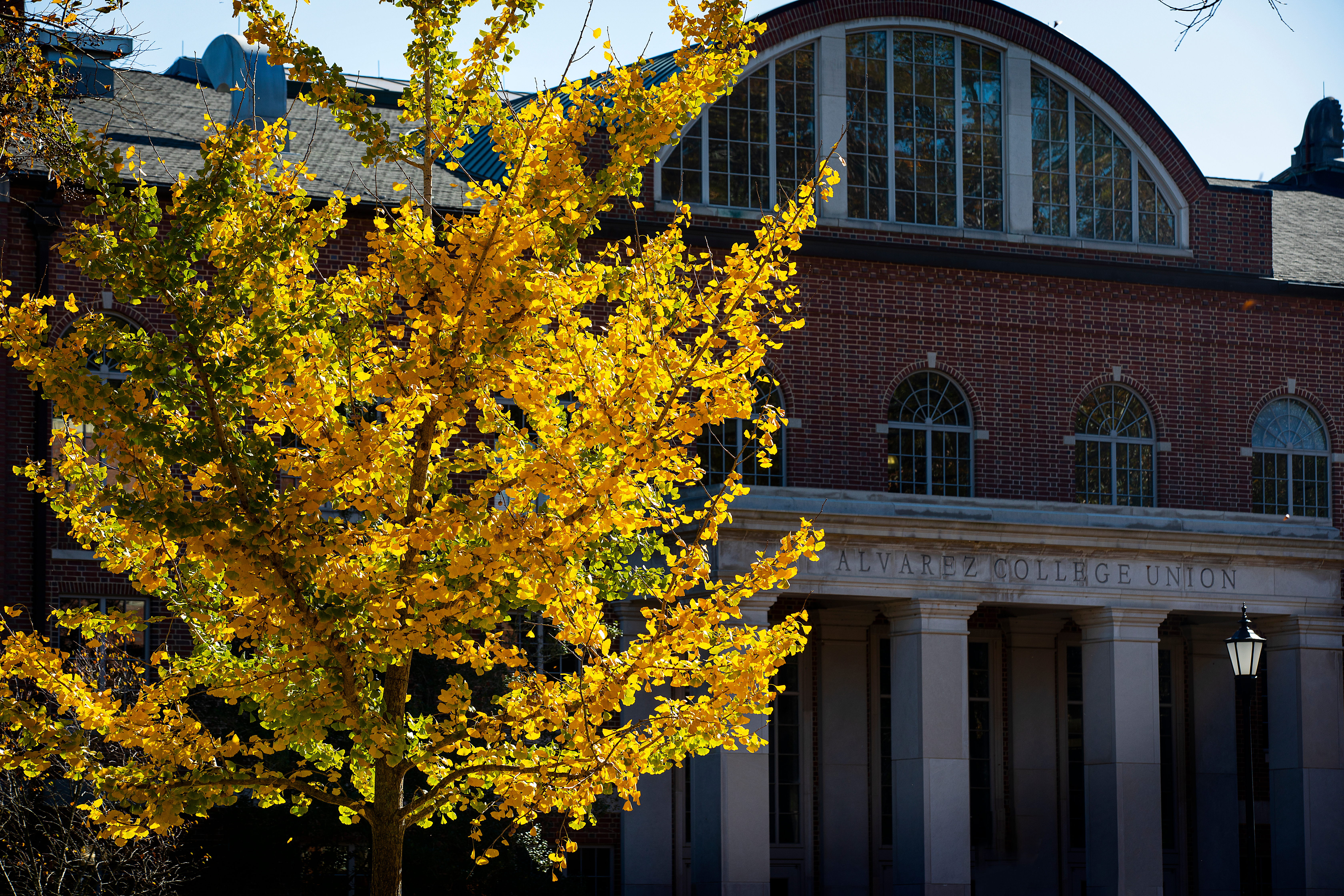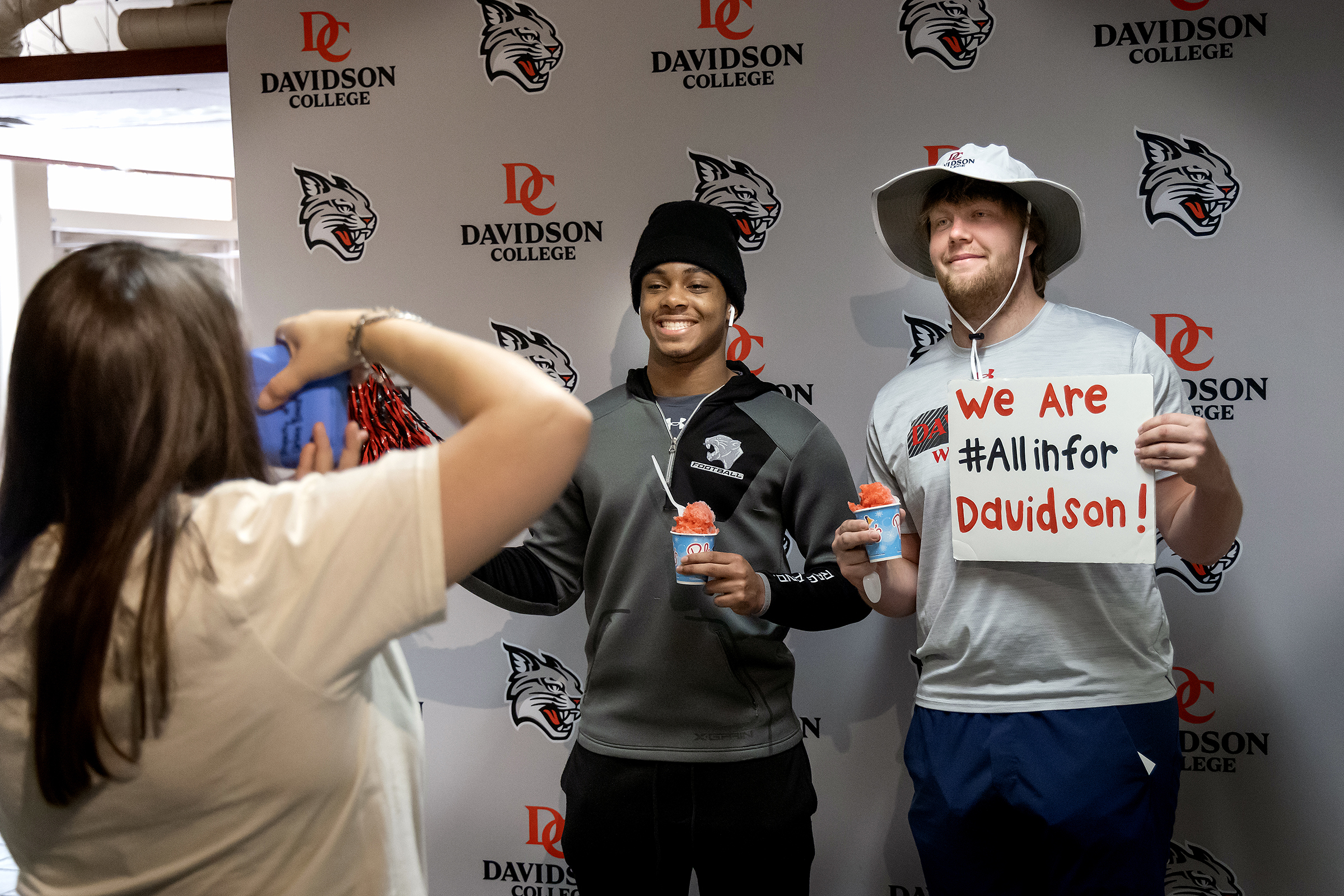College Welcomes New Director of Sustainability
October 3, 2016
Davidson's newly hired director of sustainability Yancey Fouché joined the college Aug. 22. Fouché is eager to get involved with various environmental initiatives and organizations at Davidson. Her top priorities are to help "green" the campus and work with faculty to promote introduction of sustainability issues in the classroom where applicable.
You might expect a director of sustainability to love the mountains, enjoy bike riding and hold a master's degree in aquatic resource ecology and management.
But you might be surprised to learn that Fouché is a serious student of the Mandarin language and Asian studies.
Fouché came to Davidson after a lengthy association with Furman University in Greenville, S.C., that began as an undergraduate in Furman's class of 2004.
Having studied Latin in high school, she was eager to branch off in another direction, and chose to study Mandarin. She immersed herself in language and culture studies, including a semester abroad in China with a Furman program there. By the time Fouché graduated magna cum laude in both Asian studies and biology, she had earned honors as "Outstanding China Scholar" and "Outstanding Mandarin Language Scholar."
She decided to pursue a master's degree in some form of environmental study, but first spent a post-graduate year at Furman, which included a Freeman Foundation-sponsored program for middle and high school teachers throughout the state. The program concluded with a trip to China and Japan that she led.
Fouché's interest in Asian studies developed in conjunction with an interest in the environment. Her family habitually spent summer vacations on the Tennessee Valley Authority lakes of eastern Tennessee, promoting her interest in water issues.
She also became aware of sustainability issues by watching commercial developments strangling the forests and farmlands around her family home.
"It's all billboards and neon lights now," she said. "It's been hard to watch, realizing what that has done to all the natural systems that used to be there."
She went on to pursue a master's degree in watershed management the University of Michigan, where she excelled academically during two years of study that included informal auditing of upper level Mandarin language classes.
"I would sit on the bus and write Chinese characters and try to memorize words," she said, "when I should have been studying water resource issues!"
She capped her Michigan experience by winning a State Department critical language scholarship that sent her back to China for another three months of intensive study.
After turning down an offer to work for a watershed management organization in Mongolia, Fouché finished her master's degree and moved back south to be closer to family. On a visit to Furman to see former professors, she learned of a job there supervising the study abroad programs and advising international students.
Though it didn't exactly match her training in aquatic management, she got the job and was thrilled to be back at a college she loved in a city she loved. That assignment occupied her from 2007 to 2012, when she was named to a position that did accommodate her skill set–an administrator of Furman's David E. Shi Center for Sustainability. She worked just down the hall from Shi, a prolific intellectual and cultural historian who taught at Davidson for 17 years before moving to Furman to serve as its president from 1994-2010.
Moving Sustainability Forward
Among her many responsibilities, she coordinated a campus-wide sustainability planning council, advised students engaged in summer sustainability research and helped faculty find appropriate ways to blend sustainability issues into their class curricula. She also worked with many community constituents, serving on Greenville's Green Ribbon advisory committee, helping with a nearby town's bicycle master plan and presenting dozens of community workshops and talks on sustainability, recycling and watershed management.
Her crowning achievement at Furman, though, is just taking shape now. Principally through her effort, Furman is constructing a $15 million one-megawatt solar farm adjacent to campus whose electrical output will be directly applied on campus, rather than sent to the grid.
The project is a first for South Carolina education, and required a tremendous amount of patience and attention to detail, working with politicians, funders, technicians and Furman administrators.
"It required constantly asking the right questions and getting the right people together," she said. "It was one of those projects where the most important asset was knowing how to learn."
Fouché sought the Davidson position as a step-up from her then-associate director position at Furman, and because she thought the town would be an ideal community for her and husband Trey to raise young sons Finn and Oliver.
She hasn't returned to China since 2007, but continues to follow the country's environmental challenges closely.
"China unfortunately presents the textbook worst-case scenario for every environmental problem," she said. "The issues they're facing are huge. But whatever political and cultural differences there are between the United States and China, as the two largest economies in the world we must try to collaborate on environmental solutions."
While she won't be formally engaged in Chinese studies at Davidson, Fouché looks forward to meeting Chinese students and participating in the Mandarin table in Vail Commons.
She has begun meeting with campus leaders to get their opinions on sustainability issues, and has organized a sustainability student leadership council. In addition, she will advise the Sustainability Co-op (formerly the Eco House) on their programming, and work with the "Campus as Lab" project to investigate campus transportation issues.
However, Fouché does not want the community to view her as "the sustainability police."
"I like to think about sustainability systematically and implement ways to make the right choices easily accessible," she explained. "For me, individual impact is more than getting people to flip light switches–it's changing mindsets so that people will create change through their careers, churches, families or whatever access point they have in the world. I don't want anyone to feel guilty when they're not recycling their can because they're in a hurry. I understand that life–like the environment–is incredibly complex."



